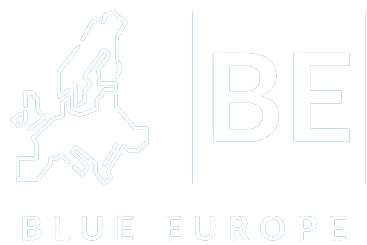The European start-up ecosystem is moving fast, but to close the gap with the US – while Asia is chasing records – unified political action could be now needed.

Europe’s recent and encouraging infatuation with young start-ups in the hitech, biotech, medtech, greentech, or fintech sectors goes beyond the venture capital segment alone. The national astral conjunction has become favourable to the creation of innovative companies. Encouraged by their public institutions, young scientist and business school graduates are more and more attracted by entrepreneurship. The big cities and the governments are encouraging the multiplication of incubators, accelerators, co-working spaces, fablabs and other places of innovation.
Finally, public and private funding sources abound: crowdfunding, business angels, venture capital. Even the Euronext groups, panicking at the idea of being “disrupted”, are very involved.
For instance, Central and Eastern Europe has become the fastest growing tech ecosystem in Europe. Between 2015 and 2019, yearly investment in the region grew 4.3x from 0.3B to $1.8B, more than twice as fast as Western Europe. While the evolution is of course relative, as it had to meet the already fast Western Europe, the success is impressive nonetheless. The region has also now produced eight unicorns, including Vinted and Gitlab, and six billion dollar exits, including Skype and LogMeIn. These success stories are breeding a large pool of talent, skills and capital to be recycled amongst the growing number of rising star startups in the region, fuelling growth.
Poland
Here, Poland is making its power play, with a rising tally of digital success stories, a well-developed startup infrastructure : the arrival of Google Campus in its capital Warsaw in 2016 was the first step toward a Europe wide recognition, which, in a certain way, Poland did not need. One of Poland’s most important assets is its human capital: a large university network, spread over the main cities, supplies the labour market with thousands of highly educated and qualified technical professionals.
Poland has also long been known as home to a pool of great developer talent – the largest in Central and Eastern Europe at 401K, over twice the number of Romania in second place (139K). Reports by Hackerrank and Stack Overflow in 2016 showed that Poland was home to around 254,000 developers and ranked first in the world for Java developers, showing a large increase in 5 years.
Poland has already produced a number of global tech startup successes. A July 2020 report by Dealroom found over 2,400 Polish early- and later-stage startups, 97 venture capital funds and cataloged over 1,600 funding rounds in 2019. The country has over 401,000 engineers (twice that of Romania at 139,000). It also had twice the number of venture capital rounds in the region (823 compared to Estonia’s 477).
Polish startups are on a funding roll, as the average cheque size for pre-Seed-stage investments has almost tripled since 2013. At the same time, it’s attracting foreign investors. Codility and Nomagic were two startup investments that stood out this year so far. Nomagic, a smart “pick and place” robotic solution, attracted investment from the U.K.’s Hoxton Ventures and Khosla Ventures in the U.S. Key, later-stage startups include Booksy, Brainly and Docplanner, while significant recent exits include Fibaro, PizzaPortal and Frisco. Poland has a sophisticated banking system, meaning there is an increasing number of fintech startups in the space.
Meanwhile, the startup ecosystem has, in recent years, been spreading outward from the capital, Warsaw, to Kraków, Łódź, Wrocław and Gdansk. Significant IoT startups include Krakow-based Estimote and Kontakt.io, trailblazers of beacon technology. Estimote has made its mark on the retail industry by using beacons and indoor navigation technology to provide an integrated offline and online shopping experience that allows retailers to develop a more targeted promotional strategy.
The country has also developed into a leading video game exporter. CD Projekt’s Witcher series was a big hit, based as it was on a series of best-selling Polish books, which were also the basis for a Netflix show. While recent Cyberpunk 2077 was more or less a catastrophe at release, the studio keeps a very high reputation. According to data from PwC, Poland’s video game and esports market was worth $664 million in 2019 — up from $400 million in 2014 — and is predicted to climb to nearly $850 million over the next four years.
Sixty per cent of Poland’s digital entrepreneurs had self-funded their startups, and reported being profitable from the outset. Others have used EU funding and domestic and overseas VC funding.
Poland is rich in tech innovation and tech talent and its economy is in reasonably good shape compared with other European countries. Some experts have indicated the focus must now shift from startup to scalable startup if they are to attract the growth funding.
EU funding is helpful but short term. Poland is home to at least 97 venture capital funds, and foreign investor appetite is also significantly on the rise. PFR Ventures is the largest institutional investor in the CEE region, having launched almost 30 new VCs between 2018 and 2019 which collectively have raised $1B in cash ready to deploy in the Polish market. While there are VC funds in Poland, including Protos VC, IQ Partners and Black Pearls, but growing companies will need access to more funds from foreign investors for later stage investment rounds. . In 2018 69% of Polish rounds had involvement from a foreign investor, often top tier VCs from around the world.

The Baltic countries: the Lithuanian unicorns
Funding for start-ups in the Baltics has increased in 2020, despite the Covid-19 pandemic. The three Baltic states may only have a total population of around six million people, but are nevertheless home to several unicorns. The latest one, Pipedrive, a cloud-based CRM tool, was the latest to reach unicorn status when its valuation was put at about 1.5 billion US dollars last month following a major investment from Vista Equity Partners, an Austin, Texas-based VC firm.
This week Estonia-headquartered mobility start-up Bolt has raised 150 million euros in its biggest funding round to date, bringing total investment in the firm to 450 million euros, following a 100 million euros round in May that pushed its valuation to 1.7 billion euros. “Despite the effects of the Covid-19 pandemic, Bolt has seen immense growth in the past year,” said Bolt CEO and co-founder Markus Villig.
“We have almost doubled our number of customers and launched our services from ride-hailing to micromobility and food delivery in 50 new cities.”
Indeed, despite the impact of the Covid-19 pandemic, investment in the region’s start-ups has rebounded in 2020 following a reduction in funding in 2019. According to a new report from Startup Wise Guys and EIT Digital, in first half of 2020 the region saw significantly more funding than the same period of last year.
Optimism among Baltic start-ups is on the up too: of the start-ups surveyed for the report, 75 per cent said they have a positive outlook on profitability in the next three years.
One of the main reasons why the Baltics are thriving despite the pandemic is the region’s world-leading connectivity which has made it relatively easy for start-ups to transition to remote and hybrid modes of working. The report also suggests that this has led to a happier workforce.
The 2020 report is the largest to date, featuring five main sections that highlight investment data within the Baltics, benchmark the region with its surroundings, and offers a curated list of start-ups to watch, as well as analysis of what 2020 has been like for start-ups, investors, and the broader ecosystem.
Overall, the number of start-ups per capita in the Baltics has increased, especially in Estonia where there are now 39 per cent more start-us than last year, bringing the country’s start-up per capita rate to 7.9. Latvia and Lithuania also recorded increases of 14.7 and 4.14 per cent respectively.
Among the three countries, Lithuania has maybe been the busiest transforming itself into a very startup friendly country in recent years, with the number of active startups growing from around 80 five years ago to 520 today.
There are many reasons for a startup to set up shop in Lithuania; according to the World Bank, it is the 16th most business friendly country in the world. In Lithuania it only takes three days to start a new business, and three months to receive a banking licence (hence several fintechs, such as Revolut, establishing themselves there); the country ranks first in the CEE for collaboration between universities and industry for R&D; it has some of the lowest taxes in Europe and the lowest costs of living; a highly skilled workforce; and Vilnius has been ranked one of the top ten smart cities in the world by CNN. In 2019, FDI Intelligence ranked Vilnius as the number one city in its first ever Tech Start-up FDI Attraction Index.
Research from the Financial Times service examined which cities were receiving the most tech start-up foreign direct investment (FDI) relative to population, for the period between 2016 and 2018. The global ranking saw the Lithuanian capital outstrip well-known start-up hubs such as New York, London, Singapore, Tel Aviv and Berlin.
Since then, the start-up ecosystem in Vilnius has not slowed its progress. The city itself sees to this by supporting the creation of innovation hubs and accelerators, as well as welcoming bank conditions for founders.
“Vilnius is known for being a growing tech hub, and its strengths lie in a regulatory environment, the abundance of technology talents, and favourable work-life balance conditions – all of which help all newcomers integrate into the markets with ease,” said Vilnius mayor Remigijus Šimašius. “Start-ups take full advantage of the city’s efforts to implement life-changing ideas.”
Last year, Vilnius added the Startup Museum to its start-up ecosystem. This space hosted at Talent Garden Vilnius tells the stories of prominent players in the city’s start-up scene, such as Vinted, Lithuania’s first tech unicorn. This month, the Startup Museum hosted its second annual awards ceremony to celebrate just some of the new start-ups on the rise in Vilnius. The virtual event and exhibition presented awards across six categories, including a Best Covid-19 Response award for the year that’s in it.
Lithuanian Starts are extremely varied. For instance, among the unexpected : the Pomodone app offers a way to manage your workflow using the Pomodoro technique – a time management method developed by Francesco Cirillo in the late 1980s. The technique uses a timer to break down work into intervals of 25 minutes in length, separated by short breaks. Practitioners feel the technique improves motivation, creativity, and productivity. While a timer may seem trivial, it is noteworthy that Pomodone has integrated its timer app with a wide range of productivity software for handheld and desktop systems including Todoist, Trello, Wunderlist, Asana, Evernote, Slack, Microsoft Outlook Tasks, Google Calendar, and Chrome. The Pomodoro app includes a number of additional features including logging, an essential feature for doctors, therapists, and other professionals and workers who bill or are paid by the hour or by the task.

Czech Republic
However, success is not limited to these countries, which are still undergoing accelerated development across all economic sectors. The Czech Republic, which has been a fully industrialised country since the end of the Soviet bloc with the help of German industries, and which has a level of development comparable to that of the West, is accomplishing a number of impressive achievements.
Contrary to the examples previously mentionned, the Czech Republic has above all succeeded in its technological transition thanks to first-rate public policies in terms of rational management. For more than 20 years the Czech government has been pushing local businesses to develop, while attracting entrepreneurs from all over the world. The latest large installment of this policies is the Web portal CzechStartups.org. This website is an online platform for startup companies that fosters the communication between startups, investors and infrastructure[ (incubators and accelerators) and startup environment in the Czech Republic. The project was launched in Autumn 2015 as a project of the Czech Investment and Business Development Agency, CzechInvest, in collaboration with key project partners IBM, Czech ICT Alliance, AMSP and Rockaway. Since its creation, around hundred startups have succeeded in funding more than 10M€ each.
This December ( 2020) another example of Czechia great StartUp success has emerges. While investment funds in Silicon Valley have turned the owners of many unprofitable startups into billionaires overnight, the founders of JetBrains s.r.o. have managed the feat without the help of venture capital.
The Prague-based startup, whose programming language last year became Google’s preferred development tool for Android, is worth about $7 billion, according to the Bloomberg Billionaires Index. That valuation would make Sergey Dmitriev and Valentin Kipiatkov, two of the three Russian founders who incorporated JetBrains in 2000, billionaires. The firm, which boasts it is among the biggest employers of programmers in St. Petersburg, isn’t interested in raising capital amid high demand for technology companies, according to Chief Executive Officer Maxim Shafirov.
“Venture capitalists write every other day, and I feel like a very impolite, unkind person, because I’ve stopped answering,” Shafirov said an interview. “We’ve got enough resources to realize our ambitions.” The lack of investors means JetBrains is under no pressure to sell shares amid the current listing boom, with December set to be the busiest year-end on record for initial public offerings in the U.S. Venture capital investments in the country hit the highest in almost two years in the third quarter, reaching $36.5 billion, according to a CB Insights report.
Unlike many companies selling stakes this year, JetBrains turns a profit. It is on track this year to boost earnings before interest, taxes, depreciation, and amortization by more than 10% to over $200 million, according to Shafirov.

Can we do more?
Regulators’ actions in favour of such a broad category as start-ups are partly a fantasy: it is impossible to create a framework that allows everyone to develop. Yet, a greater harmonisation of regulations at European level is crucial. This presupposes that the European regulator takes an unambiguous and focused position in favour of start-ups, with ad hoc rules that apply to all EU countries.
The fact that the universe of unicorns is also increasingly populated on the Old Continent and is growing at a frenetic pace, as noted in the McKinsey report “Europe’s start-up ecosystem: Heating up, but still facing challenges”, is therefore something to celebrate. The trend has accelerated in recent times: of the 99 VC-backed start-ups in Europe that have so far become billion-dollar companies, 14 have made the metamorphosis in 2019 alone. And the list includes well-known names on the international scene, such as the German digital bank N26, the French virtual health scheduling service Doctolib and the Lithuanian second-hand clothes marketplace Vinted.
However, on average, European start-ups are still the least present in the global arena and the ones that receive the least funding, as well as being less likely to complete their lifecycle, be it in terms of obtaining Series C funding (those that on average take the size from start-up to scale-up) or exit through listing or sale.
Europe generates 36% of all start-ups, but only 14% of unicorns. By comparison, the US generates 45% of global start-ups and 50% of unicorns; not to mention Asia, which produces 17% of start-ups and 33% of unicorns.
In proportion to its population and GDP, the number of seed start-ups that Europe generates is 40% of that of the US.
Historically, the European ecosystem has been less effective than that of the US in bringingstart-ups in the advanced stages of development. Analysing start-ups that received seed or angel funding between 2009 and 2014, McKinsey finds that the universe of European start-ups was on average 30% less likely to make an exit, compared to those that had raised early stage capital in the US in the same timeframe. This is not to say that default rates are higher, only that European start-ups stop at some point. And that is exactly the point: the businesses are good, but they remain small. That is problematic because of the lack of protection towards external investor.
Over the years, though, the US tech haul in Europe has been even higher. In a detailed analysis of acquisitions from 2012 to 2016, the European Commission-backed Startup Europe Partnership, which connects innovators with major European corporations in a bid to improve the prospects for nascent tech firms, found that an incredible 44% of European start-ups were bought by American and Chinese interests.
Does it matter in a globalised world? Well, yes – because whole new areas of emerging technology are at risk of being plucked out of Europe and developed under foreign control instead. To get a grip on just what it all means, and the high cost to Europe’s intellectual capital, you need only glance at the attrition this ongoing US shopping spree has had on one promising area of endeavour: artificial intelligence, a field currently led outside the US by the UK, China, Japan and Israel. From mid-2015 to early 2016 only, at least five super-innovative British AI start-ups were snapped up by US firms:
- DeepMind, the deep neural networking pioneer – whose technology famously beat the world Go champion – was acquired by Google for almost $500 million;
- Swiftkey, a maker of predictive, swipe-based touchscreen keyboards, went to Microsoft for $250 million;
- Magic Pony Technology, which develops computer vision and image clean-up algorithms, was sold to Twitter for $150 million;
- PredictionIO, which has engineered an open-source machine learning platform, was bought by cloud computing platform Salesforce for an undisclosed sum;
- VocalIQ, maker of a high-fidelity speech recognition AI, was purchased by Apple for more than $50 million.
It is not a situation that Europe can allow to continue unabated. After all, observers ask, what is the point of EU universities teaching and developing engineering talent and generating valuable patents only to have the revenues, profits and jobs that stem from such EU-nurtured technology benefitting not our interests?
At the Technical University of Munich, Ann-Kristin Achleitner, a professor specialising in entrepreneurial finance and technology transfer, agrees that addressing the loss of European start-ups to the US is crucial. “These trade sales to the United States are too common”, she warns. “We have quite a lot backed up in the technology pipeline and we clearly need to better leverage the transfer of that technology to create start-ups that stay in Europe. If you move ownership of companies abroad, you also move control of jobs.”
Other cultural factors are at play, too, says Dominique Foray, an expert in the economics of innovation at École Polytechnique Fédérale de Lausanne. “There’s a paternalistic management culture that emphasizes control over local empowerment and delegation and that is incompatible with fast growth firms”, he says. On top of that, a fear of the stigma of failure and a general lack of recognition of entrepreneurs leaves Europe behind in the hard-nosed business stakes. “There are many obstacles to emerging firms in Europe and this generates an incentive to move and find a better location.”
On the plus side, some bright minds of Europe’s top technology-creating universities are addressing the issue by putting forward new ideas, including ambitious tax plans and changes to the patent system. But it will take much more than a few incentives to create a European Google, Facebook or Amazon. What’s needed, say many experts, is a change of culture and attitudes. Not only venture capitalists but major institutions like the European Investment Bank and the European Commission should confidently back youthful entrepreneurs, be far less risk averse and shed their hostility to rapidly earned wealth.





